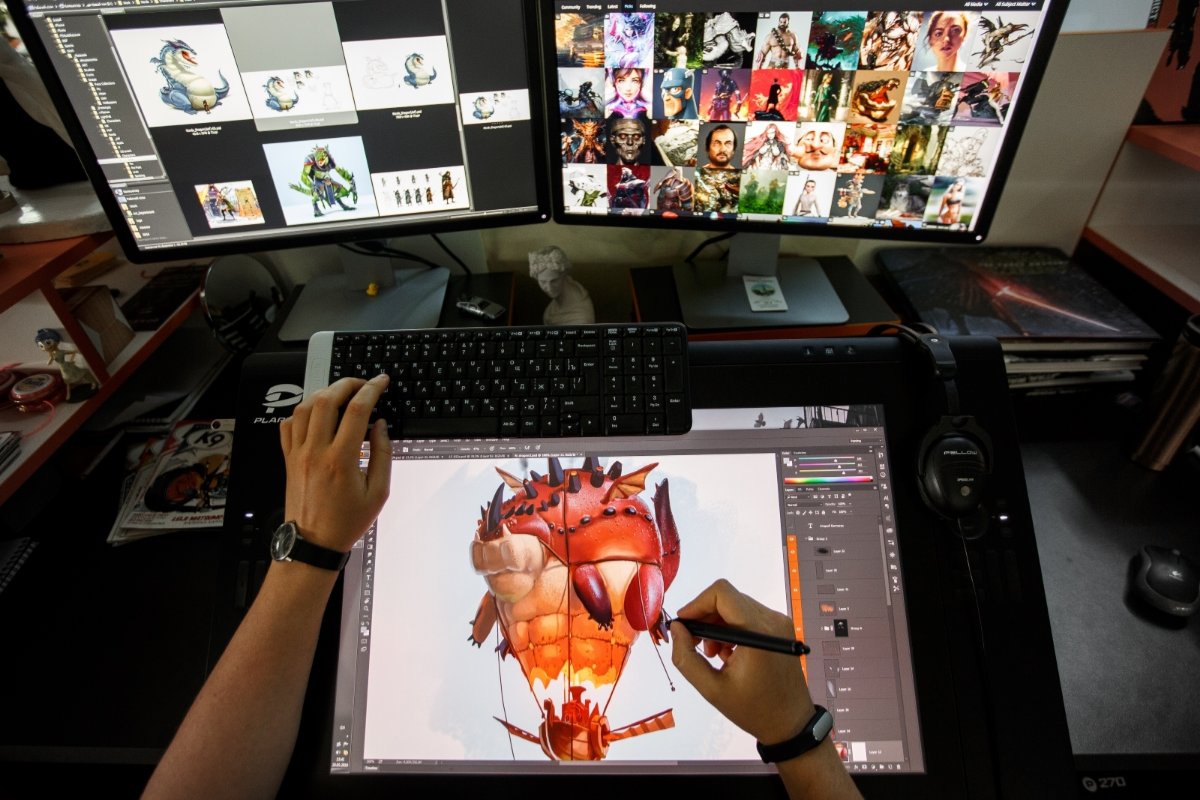- 23 August 2024
- 174
How AI is Shaping the Future of Video Game Development

Meet Alex, a seasoned video game developer with over a decade of experience in the industry. With a background in computer science and a passion for storytelling, Alex has witnessed firsthand the transformative power of artificial intelligence (AI) in game development. From creating lifelike characters to generating immersive worlds, Alex shares insights on how AI is reshaping the landscape of video games.
Video game development has always been at the cutting edge of technology, pushing the boundaries of what’s possible in interactive entertainment. In recent years, artificial intelligence (AI) has emerged as a game-changer, transforming how games are created, played, and experienced. From crafting intelligent non-player characters (NPCs) to generating dynamic worlds, AI is revolutionizing the gaming industry.
AI-Powered NPCs

One of the most significant advancements AI brings to video game development is the enhancement of NPC behavior. Gone are the days of predictable, scripted actions. AI enables NPCs to learn, adapt, and react to player actions in real time, making interactions more engaging and realistic. For instance, in games like “The Last of Us Part II,” AI-driven NPCs exhibit complex behaviors, such as coordinating attacks and responding to the player’s tactics.
Realistic Interactions
AI also allows for more realistic and meaningful interactions between players and NPCs. Advanced algorithms can analyze player behavior and preferences, enabling NPCs to respond in ways that feel natural and personalized. This creates a more immersive experience, as players can engage in dynamic conversations and form emotional connections with game characters.
Procedural Content Generation
Procedural content generation (PCG) is another area where AI is making a significant impact. PCG algorithms use AI to create vast, intricate game worlds that would be impossible to design manually. Games like “No Man’s Sky” leverage AI to generate entire galaxies, ensuring that no two players have the same experience.
Dynamic Level Design
AI-driven PCG also allows for dynamic level design, where game environments can change based on player actions and progress. This keeps the gameplay fresh and unpredictable, as players encounter new challenges and environments each time they play.
Personalized Gaming Experiences
AI can analyze a player’s skill level, play style, and preferences to create personalized gaming experiences. This adaptive gameplay ensures that players are constantly challenged and engaged, without feeling overwhelmed or bored. For example, in “Middle-earth: Shadow of Mordor,” the AI-driven Nemesis System adapts enemy behavior based on the player’s actions, creating a unique and evolving gameplay experience.
Real-Time Difficulty Adjustment
AI can also adjust the game’s difficulty in real-time, ensuring that players remain engaged. If a player is struggling with a particular section, the AI can modify the game’s parameters to provide a more manageable challenge. Conversely, if a player is breezing through, the AI can increase the difficulty to keep things interesting.
AI in Storytelling
Storytelling is a crucial aspect of many video games, and AI is enhancing this element by enabling branching narratives. AI algorithms can create complex storylines that adapt to player choices, ensuring that each playthrough is unique. Games like “Detroit: Become Human” utilize AI to craft intricate, branching narratives that respond to player decisions.
Intelligent Dialogue Systems
AI-powered dialogue systems allow for more natural and engaging conversations between players and NPCs. By analyzing player input and context, these systems can generate appropriate and contextually relevant responses, making interactions feel more lifelike and immersive.
Enhanced Graphics and Animation
AI is also transforming the visual aspects of video games. Machine learning algorithms can enhance textures, generate realistic lighting effects, and create lifelike environments. This level of detail and realism was previously unattainable, elevating the overall gaming experience.
Realistic Character Movements
AI-driven animation techniques enable more realistic and fluid character movements. By analyzing motion capture data and learning from it, AI can generate lifelike animations that respond dynamically to the game’s environment and player actions.
Game Testing and QA
AI is revolutionizing game testing and quality assurance (QA) processes. Automated AI tools can identify and report bugs more efficiently than human testers, reducing the time and cost associated with manual testing. This ensures that games are released with fewer issues and a higher level of polish.
Efficient Testing Processes
AI can simulate countless gameplay scenarios, uncovering potential issues that might not be discovered through traditional testing methods. This comprehensive testing approach leads to more robust and stable game releases.
Player Analytics and Feedback
AI-driven analytics tools allow developers to gain deeper insights into player behavior. By analyzing in-game actions, preferences, and feedback, developers can make data-driven decisions to improve game design and player satisfaction.
Improving Game Design
These insights help developers understand what aspects of the game resonate with players and what needs improvement. This iterative process of refinement ensures that games continue to evolve and meet player expectations.
Ethical Considerations
As AI becomes more integrated into game development, ethical considerations must be addressed. Ensuring that AI systems are free from bias and do not perpetuate harmful stereotypes is crucial for creating inclusive and fair gaming experiences.
Ensuring Fair Play
Developers must also ensure that AI systems do not compromise the fairness of gameplay. This involves creating transparent and accountable AI algorithms that do not give unfair advantages to certain players.
Future Prospects

The future of AI in video game development holds exciting possibilities. From fully autonomous game worlds to AI-generated narratives that rival those of human writers, the potential for innovation is limitless.
Predictions for AI in Gaming
As AI technology continues to advance, we can expect even more groundbreaking developments in the gaming industry. The integration of AI will lead to more immersive, engaging, and personalized gaming experiences.
Conclusion
AI is undeniably shaping the future of video game development. From creating lifelike NPCs to generating dynamic worlds and enhancing storytelling, AI is revolutionizing every aspect of game design. As developers continue to explore the possibilities of AI, players can look forward to more innovative and immersive gaming experiences.
FAQs
What is the role of AI in game development?
AI is used to enhance various aspects of game development, including NPC behavior, procedural content generation, adaptive gameplay, and game testing.
How does AI enhance NPC behavior?
AI allows NPCs to learn, adapt, and react to player actions in real-time, creating more realistic and engaging interactions.
Can AI create entire game worlds?
Yes, AI-driven procedural content generation can create vast and intricate game worlds, ensuring unique experiences for each player.
What are the ethical concerns with AI in gaming?
Ethical concerns include addressing bias in AI systems and ensuring fair play without giving unfair advantages to certain players.
What does the future hold for AI in video games?
The future of AI in gaming includes more immersive, engaging, and personalized experiences, with potential innovations in autonomous game worlds and AI-generated narratives.

